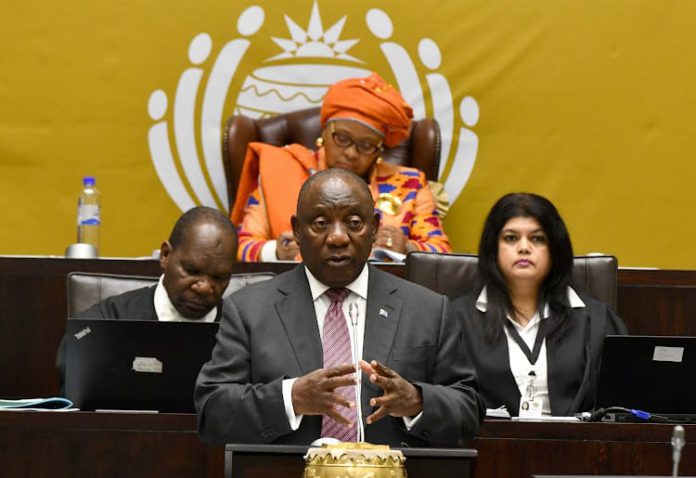President Cyril Ramaphosa has indicated that he will soon announce the scope of responsibilities for the Minister of Electricity, Kgosientsho Ramokgopa, with procurement not being among them.
The appointment of Ramokgopa as minister took place earlier last month, but a formal gazette outlining his powers has yet to be issued.
During a parliamentary session on Thursday, ANC MP Khayalethu Magaxa sought President Ramaphosa’s clarification on Ramokgopa’s strategy to protect South Africa from severe load-shedding, specifically stages 7 or 8, anticipated during the upcoming winter season.
Ramaphosa outlined that Ramokgopa’s primary focus would be on energy generation, while Minister of Public Enterprises Pravin Gordhan would ensure the establishment of a transmission company.
Minister of Mineral Resources Gwede Mantashe would oversee policy and procurement matters related to the energy sector.
Regarding the impending announcement of the minister’s mandate, President Ramaphosa stated, “The minister of electricity has his work cut out, and finalization, which is due to be announced very shortly, of actually all the mandate matters that he has to attend to, set out precisely exactly what he is meant to do.”
Ramaphosa reassured that lifting the national state of disaster concerning the energy crisis would not hinder the minister’s work.
He explained that the Electricity Regulation Act delineates the tasks related to generation, which the Minister of Electricity must execute.
These include identifying the necessary energy sources and collaborating with the Minister of Mineral Resources and Energy for the procurement process.
Once the procurement is completed, the Minister of Electricity will oversee its implementation, including financial closure and grid readiness.
Close cooperation with institutions such as the National Energy Regulator (Nersa) and the Minister of Public Enterprises is emphasized.
Ramokgopa’s role in driving urgent actions coordinated by the National Energy Crisis Committee (Necom) to address load-shedding was also highlighted by President Ramaphosa.
He clarified that matters pertaining to energy policy remain the responsibility of the Minister of Mineral Resources and Energy.
Addressing concerns about accountability, Ramaphosa defended his decision to place the ministry within his office, stating that it does not diminish the minister’s responsibility.
He noted that several ministers are accountable to parliament despite their work being lodged within the Presidency.
Regarding parliamentary oversight, Ramaphosa emphasized that parliament has a constitutional obligation to develop mechanisms ensuring accountability and oversight of all executive organs of state in the national sphere of government.
Narend Singh, an MP from the IFP, expressed hope that the three ministers involved would work together without significant disagreements in the cabinet room.
Ramaphosa reiterated the critical importance of the three areas of work within South Africa’s electricity architecture.
He emphasized the cooperation among the ministers and dismissed media reports of conflicts or turf wars, stating that they are working well together and understand the need for effective communication to move forward.
Ramaphosa firmly denied claims that his cabinet has failed to address the ongoing electricity challenges, asserting, “We’re not sleeping on the job.”












